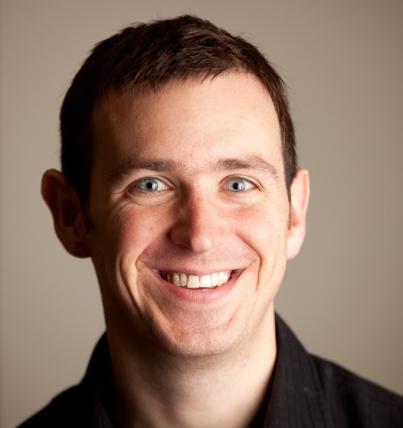This fall the UW English Department welcomes six new faculty. We are delighted to introduce: Dr. Chris Holstrom (Assistant Teaching Professor in Technical and Professional Communication), Dr. Jonathan Isaac (Assistant Teaching Professor in the Program for Writing Across Campus), Dr. Linford Lamptey (Assistant Teaching Professor in Technical and Professional Communication, Dr. Calvin Pollak (Assistant Teaching Professor in Technical and Professional Communication), Dr. Jonathan Radocay (Assistant Professor in American Indian and Indigenous Literary Studies), and Dr. Alex Ramos (Assistant Professor in Latinx Literature and Culture). Please join us in welcoming our newest colleagues!
Chris Holstrom joins the English department as an Assistant Teaching Professor in the Program in Writing Across Campus (PWAC). He holds a PhD in Information Science from the University of Washington (2023). His research focus is in Knowledge Organization, particularly the social, cultural, and technical aspects of subject indexing and tagging. His dissertation explored feelings of control in these processes, and how different forms of vocabulary control affected those feelings. His teaching experience includes library science and data science, but he primarily teaches technical and professional communication and science writing.
Dr. Holstrom's connections to UW extend back for more than 20 years. He completed an M.S. in Technical Communication at UW in 2002 before pursuing a career in technical writing at IBM and Google. While working at Google, he taught classes in software documentation at UW as an adjunct instructor. After serving as the Head of Technical Writing for Google Cloud, Dr. Holstrom returned to UW to prepare for a teaching career. He taught in the IWP (now PWAC) during his time as a PhD student and thoroughly enjoyed the student-focused philosophy of the program and the connections that he could build with students in small classes. He is excited to be teaching in the program full-time.
Outside of work, Dr. Holstrom is making progress on his project to run every street in Seattle, and occasionally runs an ultramarathon. He also enjoys his time with his two daughters and their swim teams.
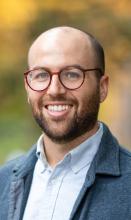
Broadly, Dr. Isaac’s research interrogates the rhetorics of graduate labor in American higher education, using case studies across fifty years at the University of Wisconsin to trace changes in graduate employee self-identification and action. In addition to spending time in the university archives as a PhD student, he also enjoyed introducing his students to the archives for research projects on campus-based social movements. His work has appeared in the edited collections Graduate Students at Work and (Re)Considering What We Know, and the journal Teaching in the Two-Year College.
Outside of work, Dr. Isaac loves learning about Seattle (especially its architecture and labor history), watching old movies at the many theaters around town, and spending time near the water.
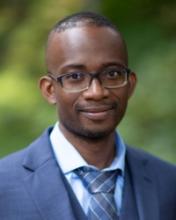
Dr. Lamptey’s dissertation, African Rhetoric: Ancient Traditions, Contemporary Communities & Digital Technologies, articulates and reclaims African rhetorical traditions, and applies an African rhetorical lens for examining how contemporary Ga communities in Ghana can and do use digital communications to further cultural practices. Dr. Lamptey is also co-author of the article “Where We Are: Writing in the West African Context” published in Composition Studies.
Over the past seven years, Dr. Lamptey has been active in presenting his scholarship at conferences, participating in committee work with colleagues, and teaching a wide range of writing courses - from first-year composition to technical writing/communication and beyond. He enjoys opportunities to work with wide-ranging student populations and is most motivated to apply his teaching where it supports the community. His broadest career goal is to fuse technical communication to community support.
When not teaching, Dr. Lamptey enjoys watching documentaries that reveal culture previously unknown to him, and spending time by various waters and enjoying the nature therein.
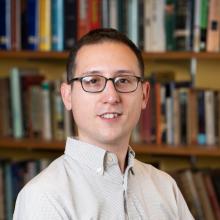
Dr. Pollak’s research is located at the intersections of technical & professional communication (TPC), rhetoric, and discourse studies, and his work has been published in Technical Communication Quarterly, Written Communication, and The Journal of English Linguistics. He is particularly interested in questions surrounding social justice, surveillance, technological research, and higher education activism. His most recent publication in TCQ, entitled “Social Justice and ‘Harmful Tech’: Dis-Orienting Militarized Research” (2023), analyzes how student activists explain and critique the development of military and police-funded technologies at their university. Along with his co-researcher Sanvi Bhardwaj, Dr. Pollak is working on a follow-up project analyzing 10 disorientation guides from across the US to better understand the affordances and constraints of this student activist rhetorical genre.
Dr. Pollak is also deeply invested in public scholarship. When he’s not designing or teaching TPC courses, he’s often working on re:verb, a podcast that he co-founded in 2018 along with Dr. Alex Helberg (Trinity College). Averaging about 10,000 monthly listeners and used in over 25 rhetoric and composition courses around the US, re:verb is a public scholarship project designed to make academic knowledge about rhetoric, discourse, and politics more accessible to public audiences and more relevant to public issues. If you’re interested in being a guest or otherwise contributing to the show, you can reach out to Dr. Pollak by email.
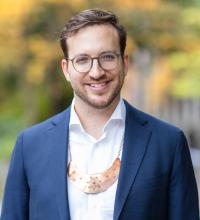
At UC Davis, Dr. Radocay was a Ford Foundation Dissertation Fellow, a Russell J. and Dorothy S. Bilinski Fellow, and a Mellon Public Scholar. Broadly, his work is situated at the intersection of Native American and Indigenous studies, Native literary studies, and new modernist studies. His current project, Stories in Severalty: Allotment and Indigenous Modernisms, re-examines Indigenous engagements with the late-19th, early-20th century US policy known as allotment, which privatized collective Indigenous land relations and attacked Indigenous sovereignty. Reading across Indigenous texts, stories, and political activism, the project shows how Indigenous authors and storytellers, past and present, have strategically appropriated the settler colonial features of allotment’s landscape of privatization to strengthen sovereignty, transmit knowledges, and extend Indigenous land relations.
Dr. Radocay is currently completing a project that brings critical reflection on personal encounters with family allotment lands in Cherokee Nation into collective conversation with other family, community, and oral history narratives that “re-member” allotment’s legacy of fragmentation, separation, and division. This project emerges from lifelong relationships to communities of Cherokee Nation citizens in the California diaspora where he was born and raised.
His writing appears in The Routledge Handbook of North American Indigenous Modernisms (2022), edited by Kirby Brown (Cherokee Nation), Stephen Ross, and Alana Sayers (NuuChahNulth & Cree), and which recently won the Modernist Studies Association’s Edited Collection of the Year award. His writing has also appeared in Modernism/modernity Print Plus, Wicazo Sa Review, and other venues.
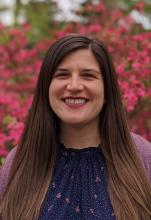
Dr. Ramos’ research and teaching interests include comparative ethnic studies, women of color feminisms, borders and diasporas, and decolonial thought. This year at the UW, she is teaching a course on Latinx Literary Genres and an American Literature survey. Dr. Ramos is working on a book project that explores print pedagogies of Asian American and Latinx writer-activists in the pre-Civil Rights era.
In her free time, she enjoys spin classes, visiting haunted places, participating in mutual aid, and cozying up with her two cats.
